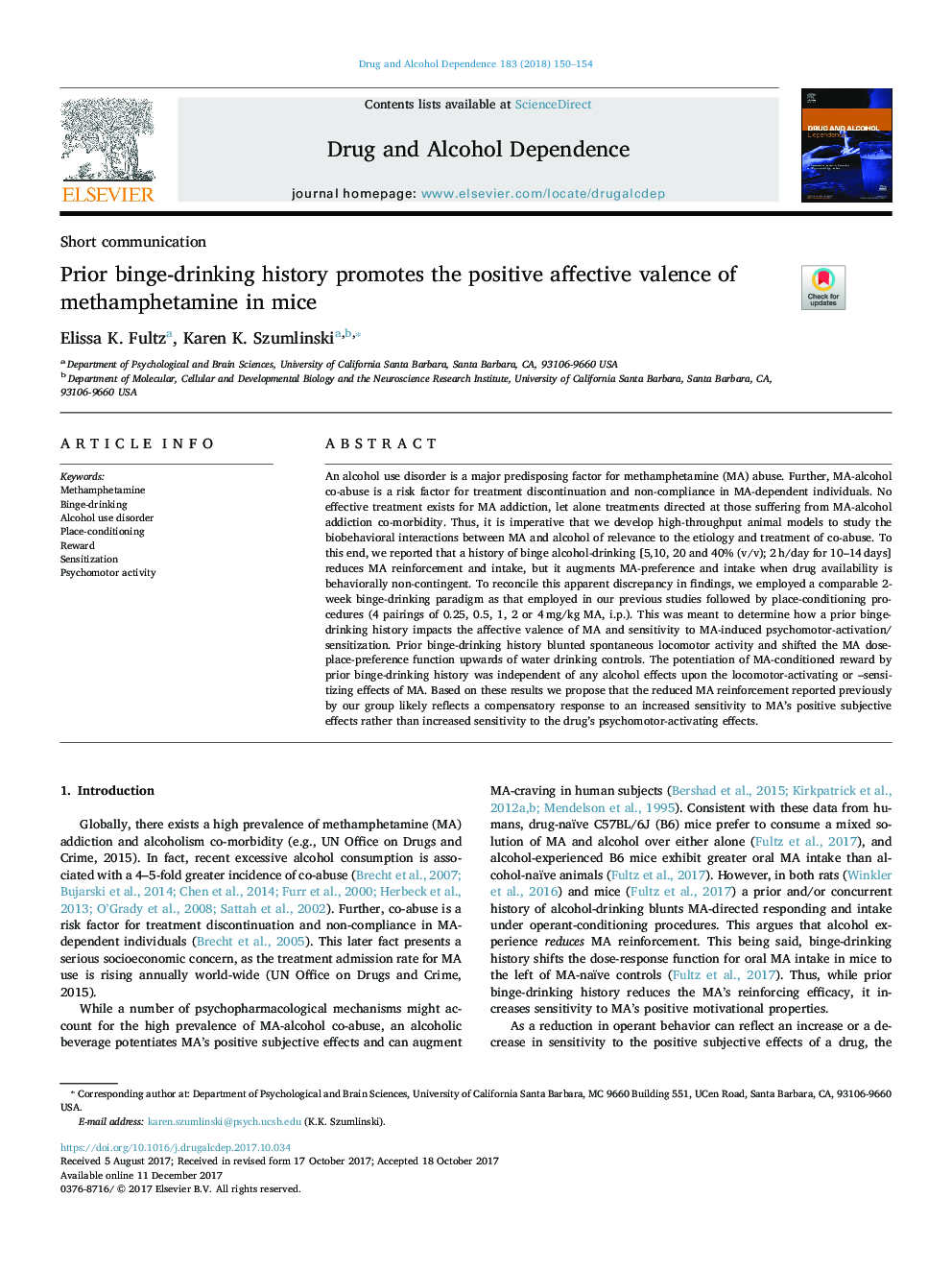| کد مقاله | کد نشریه | سال انتشار | مقاله انگلیسی | نسخه تمام متن |
|---|---|---|---|---|
| 7503414 | 1486108 | 2018 | 5 صفحه PDF | دانلود رایگان |
عنوان انگلیسی مقاله ISI
Prior binge-drinking history promotes the positive affective valence of methamphetamine in mice
ترجمه فارسی عنوان
تاریخچه پیشگیری از نوشیدن باعث تحریک واکنش مثبت متامفتامین در موش می شود
دانلود مقاله + سفارش ترجمه
دانلود مقاله ISI انگلیسی
رایگان برای ایرانیان
کلمات کلیدی
متامفتامین، زیاده روی در نوشیدن، اختلال مصرف الکل، محل تهویه، جایزه، حساسیت، فعالیت روانشناختی،
موضوعات مرتبط
علوم زیستی و بیوفناوری
علم عصب شناسی
علوم اعصاب رفتاری
چکیده انگلیسی
An alcohol use disorder is a major predisposing factor for methamphetamine (MA) abuse. Further, MA-alcohol co-abuse is a risk factor for treatment discontinuation and non-compliance in MA-dependent individuals. No effective treatment exists for MA addiction, let alone treatments directed at those suffering from MA-alcohol addiction co-morbidity. Thus, it is imperative that we develop high-throughput animal models to study the biobehavioral interactions between MA and alcohol of relevance to the etiology and treatment of co-abuse. To this end, we reported that a history of binge alcohol-drinking [5,10, 20 and 40% (v/v); 2â¯h/day for 10-14â¯days] reduces MA reinforcement and intake, but it augments MA-preference and intake when drug availability is behaviorally non-contingent. To reconcile this apparent discrepancy in findings, we employed a comparable 2-week binge-drinking paradigm as that employed in our previous studies followed by place-conditioning procedures (4 pairings of 0.25, 0.5, 1, 2 or 4â¯mg/kg MA, i.p.). This was meant to determine how a prior binge-drinking history impacts the affective valence of MA and sensitivity to MA-induced psychomotor-activation/sensitization. Prior binge-drinking history blunted spontaneous locomotor activity and shifted the MA dose-place-preference function upwards of water drinking controls. The potentiation of MA-conditioned reward by prior binge-drinking history was independent of any alcohol effects upon the locomotor-activating or -sensitizing effects of MA. Based on these results we propose that the reduced MA reinforcement reported previously by our group likely reflects a compensatory response to an increased sensitivity to MA's positive subjective effects rather than increased sensitivity to the drug's psychomotor-activating effects.
ناشر
Database: Elsevier - ScienceDirect (ساینس دایرکت)
Journal: Drug and Alcohol Dependence - Volume 183, 1 February 2018, Pages 150-154
Journal: Drug and Alcohol Dependence - Volume 183, 1 February 2018, Pages 150-154
نویسندگان
Elissa K. Fultz, Karen K. Szumlinski,
